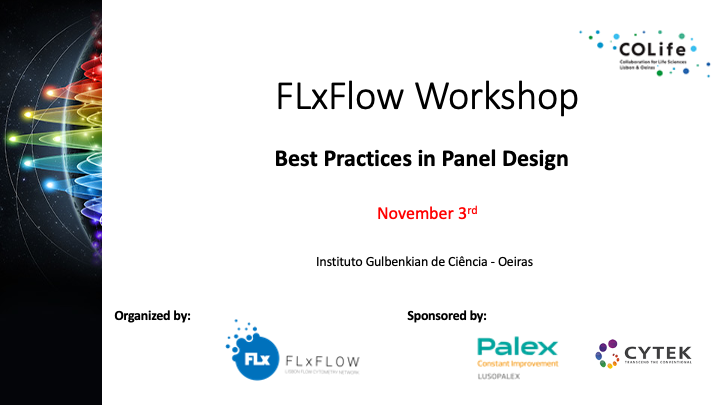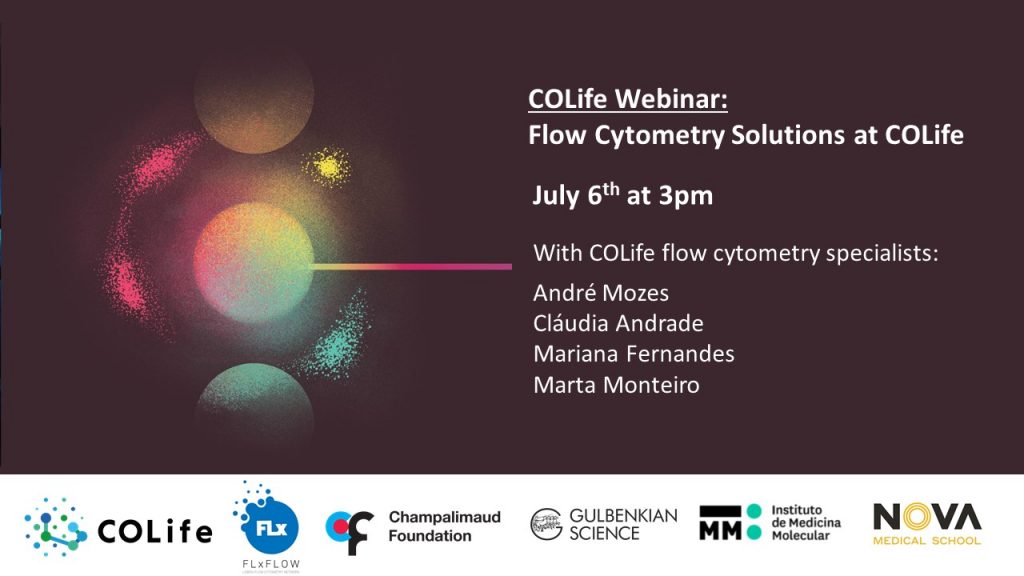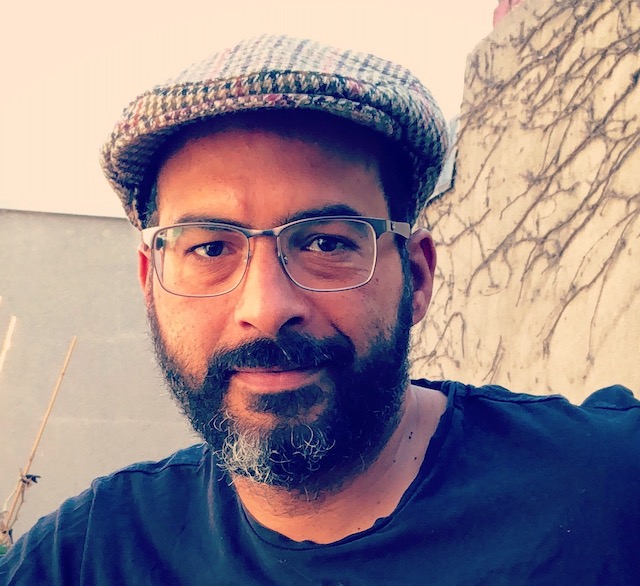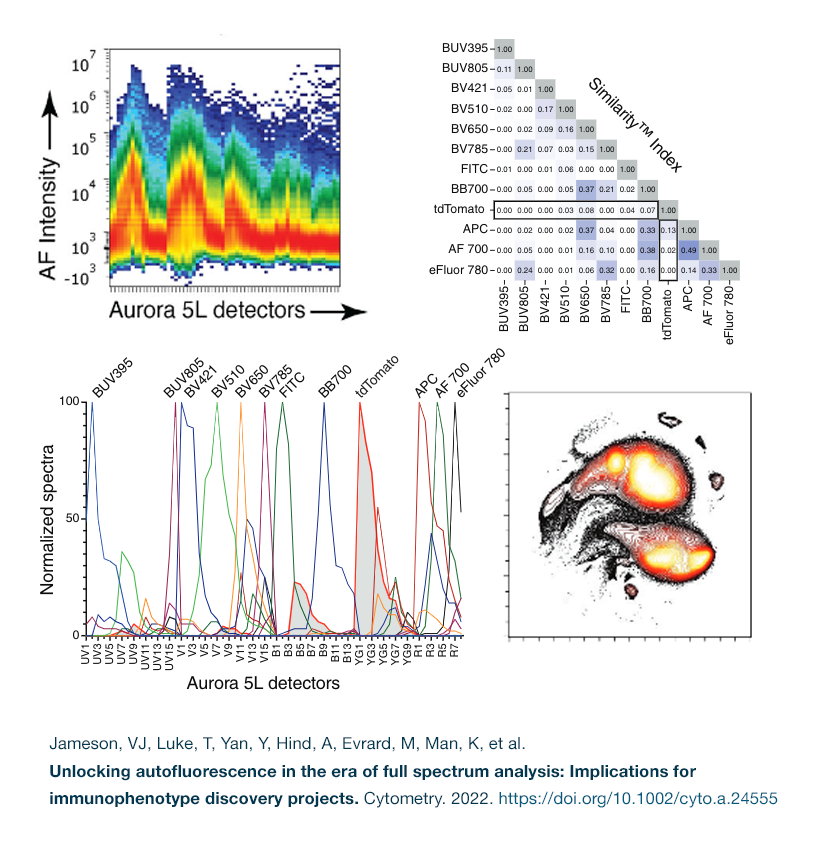November 3rd 2022: Workshop on Best Practices in Panel Design

This workshop is free of charge, but requires registration. If you wish to attend, please fill the registration form here: https://forms.gle/BTcrd8w7qb3jYPBE7
Applications close 27th October, 2022.
July 6th 2022, 15:00 Lisbon (WEST): 2022 COLife Webinar

Abstract: The COLife Flow Cytometry facilities are located at Instituto Gulbenkian de Ciência, Instituto de Medicina Molecular João Lobo Antunes, Champalimaud Foundation and NOVA Medical School. With specializes staff and state of the art equipment, they offer differentiated services in flow cytometry cell analysis, cell sorting and imaging cytometry, from experimental planning to data analysis. With a collective experience of more than 45 years, these facilities founded FLxFlow – the Lisbon Flow Cytometry network – which promotes educational events and cooperates for the development of new protocols and solutions in line with the latest advances in the flow cytometry field, both for Academia and Industry. In this webinar, the FLxFlow members will present the portfolio of services available at COLife, their workflow, possible downstream applications and technical solutions. By presenting several examples, they will discuss how Flow Cytometry can be an added value for Industry and research projects.
About COLife: COLife is an alliance of six research institutes in life sciences located in Lisbon and Oeiras: CEDOC-NMS; Champalimaud Research; iBET; iMM | João Lobo Antunes; ITQB NOVA and IGC. The mission of COLife is to promote and strengthen research in life sciences, training, innovation and connection with society, in the region of Oeiras and Lisbon.
Register here: https://bit.ly/3NFZxzF
June 23rd 2022, 10:00 Lisbon (WEST): 2022 FLxFlow Webinar
Autofluorescence and Fluorescence Resolution in Conventional and Spectral Cytometers
by Dr. Alexis Perez Gonzalez, PhD
Melbourne Cytometry Platform, University of Melbourne

Abstract:
Understanding the complex elements affecting signal resolution in cytometry is key for quality experimental design and data. In this lecture we’ll revisit cell autofluorescence’s impact on the resolution of rare markers in Cytometry, revealing its importance in polychromatic panel design and fluorescence measuring consistency. We’ll provide practical examples on the methodology for autofluorescence extraction via full spectrum unmixing and its benefits in the unmasking of dim signals and delineating the expression and subset distribution of low abundance markers. Exploiting the full spectrum coverage enabled by Aurora 5L, we’ll describe a novel approach to the comprehensive isolation of pure subset-specific autofluorescence signatures in unstained samples based on high dimensionality reduction algorithms.The lecture is based on the recently published article: https://onlinelibrary.wiley.com/doi/10.1002/cyto.a.24555

About the speaker:
Alexis’ early research career in Havana, Cuba, and the basis of his PhD, focused on the molecular characterization and evaluation of monoclonal antibodies with anti-cancer properties in pre-clinical models. Upon relocation to Lisbon, Portugal to begin a postdoctoral career at the Gulbenkian Institute of Sciences, he was given the opportunity to manage the Flow Cytometry facility (2004-2006). In 2006 he joined the Flow Cytometry Core Facility (FCCF) at the European Molecular Biology Laboratory (EMBL, Heidelberg, Germany), acting first as a senior technical officer, then as manager of the facility (2012-2016). The EMBL years cemented Alexis’s passion for cytometry’s theory and practice. For a decade, he worked with and solved technologically challenging cutting-edge molecular biology projects involving rare populations and cellular markers, very low levels of fluorescence, complex biological samples and demanding downstream processes. In 2016, Alexis was appointed manager of the Melbourne Cytometry Platform (MCP) where he has overseen the expansion of the investment in state-of-the-art instrumentation and analysis resources, industry engagement and collaboration, education and the high-level support of over 350 university students and staff annually. As head of the MCP, Alexis applies his passion for and deep knowledge of instrument quality and performance characterisation methods to best match research challenges with instrument requirements.
March 31st and April 1st : FlowJo Workshop

We will have at the IGC (March 31st) and iMM (April 1st) Serena di Cecilia, application scientist working at BD Biosciences, to give a workshop on basic and advanced features of the FlowJo software.
The sessions will be in person. This workshop is free of charge, but requires registration. If you wish to attend, please fill the registration form here: https://forms.gle/GAvB8vdDShtqZYGD8
